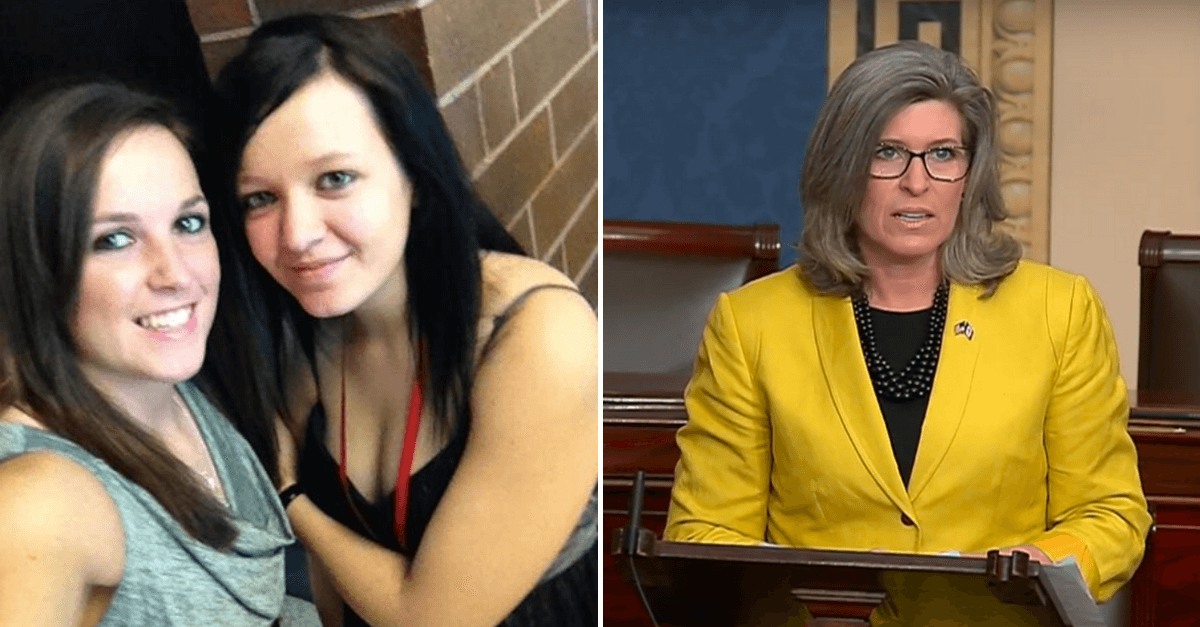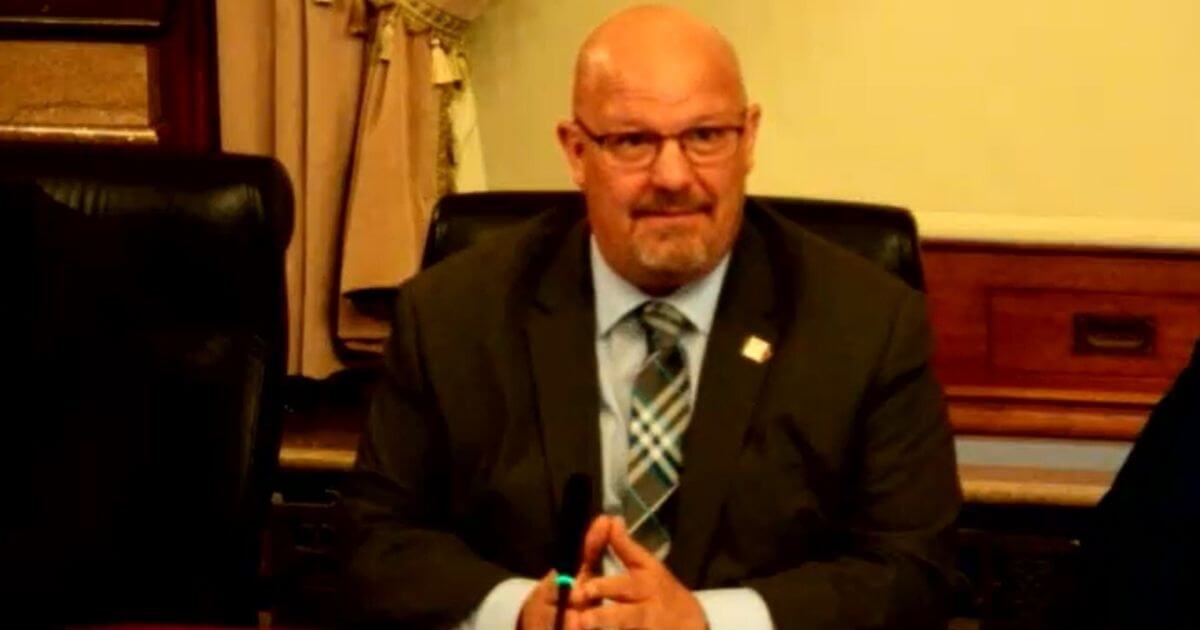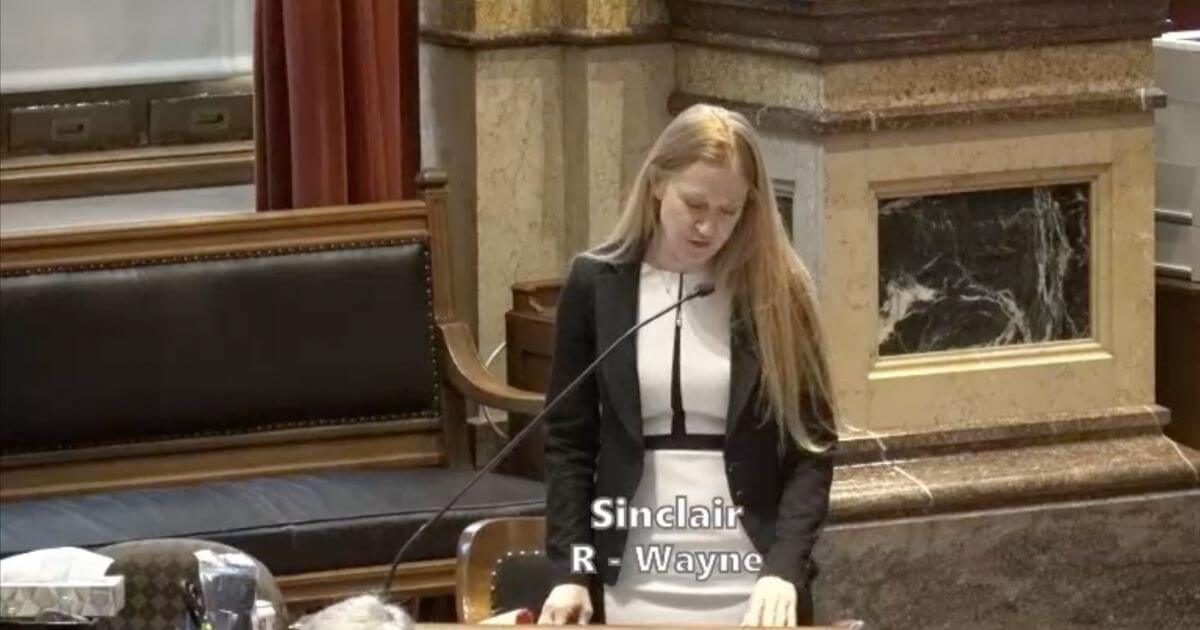
With a weighty stack of papers in hand, baring the names of 45,000 people, Lilly Steil visited Sen. Joni Ernst’s Des Moines office to tell her why she supported the reauthorization of the Violence Against Women Act.
The pile of signatures was so large they made an audible sound when placed on the reception desk.
“This is important to me because my sister was murdered last year in May of 2019, and this could have been avoided if there was a law like this out there,” Steil told the woman at the front desk.
https://twitter.com/LillyMae13/status/1230581113174794240
Roseanna Otto, a 23-year-old mother of three from Winterset, was found dead in her home on May 27, 2019. Her ex-boyfriend, Jerome Moyer III, was charged with first-degree murder and being a felon in possession of a firearm, according to the Des Moines Register.
Moyer is being held in the Madison County Jail and is expected to stand trial in June, Steil said.
“[Otto] had recently broken up with her boyfriend that she had been with for, I don’t know, I think three years or so, and he [Moyer] was trying to get back with her, wanted to be in a relationship with her, and she didn’t want that,” Steil explained. “And so I feel like this was his way of saying, if I can’t have her then no one can.”
Steil, 26, never engaged in political activism before her sister’s death, but now felt she “would be doing my sister injustice” if she didn’t speak out.
Steil and the tens of thousands of others who signed onto her petition want Ernst and other Republicans in Congress to support closing the so-called “boyfriend loophole,” a carve-out in existing law that allows people convicted of stalking and dating violence to possess firearms.
Ernst, herself a survivor of rape and domestic abuse, along with Democratic Sen. Dianne Feinstein, are leading efforts in the GOP-led Senate to reauthorize the Violence Against Women Act. But Ernst’s opposition to closing the “boyfriend loophole” has stalled those efforts.
[inline-ad id=”0″]
In the Democratic-controlled House of Representatives, a reauthorization bill passed last April with support from 33 Republicans.
The bill proposes a ban on allowing people convicted of stalking or dating violence from owning guns. It also strengthens the tribal justice system so Native Americans have greater latitude to prosecute domestic abusers and the legislation improves upon existing anti-discrimination policies for LGBTQ individuals.
“The Senate Democrats’ bill is a non-starter, it won’t pass the Senate,” Ernst said in a Nov. 20, 2019, floor speech. “It won’t get the president’s signature, and most importantly, it won’t actually help the survivors that need it.”
Ernst’s reauthorization bill provides a 10% increase over the Democrats’ proposal in funding for shelters, hotlines and other resources for survivors; triples the support for rape prevention and education above current levels; increases penalties for female genital mutilation; and recognizes sex trafficking as a form of sexual assault.
In her opposition to the House’s VAWA bill, the Iowa senator has been accused of caving to the National Rifle Association, which vehemently opposes most gun control measures, including closing the boyfriend loophole.
“I just want to know why she’s not working with the victims and survivors and why she’s putting the NRA in front of people,” Steil said. “She’s putting politics over people, for sure.”
Whether or not a person is married to their abuser is an important distinction when discussing how gun laws affect Americans differently depending on if they are married, living with their partner or in a dating relationship. Current law bars a convicted domestic abuser from purchasing a firearm if they are married to their partner, but the same rules do not apply to a stalker or someone in a dating relationship.
[inline-ad id=”1″]
Steil, of Des Moines, is featured in the “Why Joni?” campaign initiated by Be a Hero PAC to spotlight the stories of Iowa women affected by gun violence.
Amanda Johnson, also of Des Moines, says she was with her partner for six years before obtaining a no-contact order against him.
“It’s his responsibility to bring in the guns,” Johnson said she was told, “and that there was no task force or any means to utilize if he didn’t. I am actually lucky because he’s currently in prison. I don’t know if he even turned in his guns, to be honest. He might still have them at home, he’s just in prison without them. But, what happens when he gets out? That really scares me.”
In a Feb. 14 interview on the Simon Conway radio show, Ernst was asked about the future of VAWA.
“Our staffs, still to this day, continue to meet to iron out differences,” Ernst said, of her and Feinstein. “I did have a discussion with Leader McConnell the other day, and John Cornyn as well, who is a former whip for the Republican Party. He is firmly on board with my version.
“We are hoping that we can introduce either my version and move it on the floor of the Senate or at least start pulling what we agreed to with a joint bill into my bill, and move forward,” she said.
[inline-ad id=”2″]
Ernst told Conway she opposed Democrats’ VAWA bill because she thought it “did not benefit folks here in Iowa, didn’t work for our rural populations.”
Despite the inaction in Congress, Steil said she felt “really good” about “bringing awareness to people who don’t even know that this is happening.”
“She had the biggest heart,” Steil said of her sister. “She was the kindest, most caring person, always wanted to help anybody she could. And so I just want to do the same now. I want to help as many women and protect as many women as I can.”
By Elizabeth Meyer
Posted 2/21/20
Politics

Biden marks Earth Day by announcing $7 billion in solar grants
The Biden administration on Monday announced the recipients of its Solar For All Program, a $7 billion climate program that aims to lower energy...

6 terrifying things that could happen if the Comstock Act is used to target abortion
Does 1873 sound like a really, really long time ago? Well, that’s because it is—but if Republicans and far-right anti-abortion activists have their...
Local News

No more Kum & Go? New owner Maverik of Utah retiring famous brand
Will Kum & Go have come and gone by next year? One new report claims that's the plan by the store's new owners. The Iowa-based convenience store...

Here’s a recap of the biggest headlines Iowa celebs made In 2023
For these famous Iowans, 2023 was a year of controversy, career highlights, and full-circle moments. Here’s how 2023 went for the following Iowans:...




